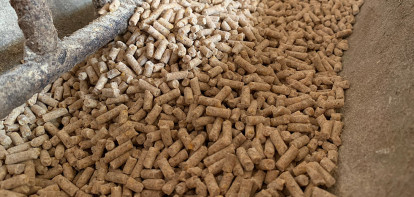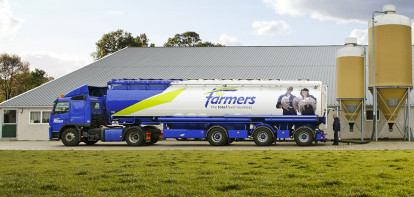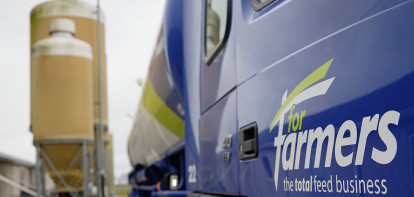Analysis Insights
Strategy of ForFarmers appears to be paying off
Quarter after quarter, ForFarmers manages to present better figures. In a challenging market - with little room for margin and shrinking livestock numbers - the publicly listed animal feed company clearly has the upward trend back on track. The company's strategy is sometimes quite daring, but it is currently paying off. The market value is now back at its highest level in a year and a half.
Whether by coincidence or not, since Pieter Wolleswinkel took over as CEO about a year and a half ago, the company has been doing noticeably better. This improvement is not so much due to market conditions, as they remain challenging due to the declining livestock numbers. The upward trend is a combination of factors. Last year, the loss-making activities in Belgium were divested, removing a disruptive element from the books. This drastic step is already paying off. Also, the raw material and energy markets have been much less volatile this year, making it easier to maintain margins.
Knowledge pays off
However, achieving volume growth in the Dutch domestic market has not been easy. In the third quarter, ForFarmers achieved an impressive 6% autonomous volume growth. Other feed companies in the Netherlands are likely feeling the impact. ForFarmers has been focusing on knowledge and feed advice on the farm for years, and it seems that this is now really starting to pay off. Especially in dairy farming, where farmers need to manage feed to reduce the CO2 footprint. Companies with a larger scale can generally organize this knowledge better than smaller players. The issue of reducing the footprint is also becoming increasingly important in pig and poultry farming, giving them time to their advantage.
Perhaps this is also the reason why ForFarmers recently terminated its membership with the industry organization Nevedi, which caused quite a stir. ForFarmers stated that it wants to accelerate sustainability faster than the collective within Nevedi. However, it is likely that they also prefer to keep the knowledge in-house rather than share it with competitors. As a market leader, it's more about giving than taking.
Acquisition and joint venture
Another notable step taken was the recent acquisition of Van Triest Veevoeders. This acquisition brought in around €70 million in revenue, with a respectable net profit margin of over 6%. Strategically, this is also an interesting player due to its strong position in residual streams. However, this somewhat independent family business has a clearly different profile that is challenging to integrate. Unlike in the past, this is being resolved by not renaming the company to ForFarmers, but positioning it separately as Van Triest CirQlar. This is probably also important for customer retention.
In the German market, a rather significant step was taken last quarter by merging activities with team agrar into a joint venture. This step is a logical consequence of ForFarmers' local approach, which Wolleswinkel strongly supports. If sharing the business is better, it is not neglected. The CEO has subtly shaped the company considerably in recent months. Further steps are likely to come, as indicated by the CFO Marloes Roetgerink who mentioned in an interview with ABM Financial News in September that she is looking forward to more acquisitions. Probably in the four countries where ForFarmers is already active, but possibly beyond. In the UK, where things are not going well, something still needs to happen. This follows an earlier failed attempt to merge the British operations - similar to Germany - with a local company.
On track for a specific goal
Analysts closely monitoring ForFarmers speak of 'steps in the right direction'. The share price has climbed back above €3.30, reaching the level since the outbreak of the war in Ukraine, which had pushed the stock price further down. Due to past underperformance, all goals were abandoned except for the return on invested capital. ForFarmers claims to be on track to achieve this 10% goal again.
Although the upward trend is clearly underway, the challenges for ForFarmers remain significant. Only Poland remains a growth market. The impact of various cessation schemes (Lbv and Lbv-plus) on the Dutch domestic market is yet to be seen. However, the current management is stable and unafraid to take decisive action when necessary. So far, this has resulted in better outcomes.




